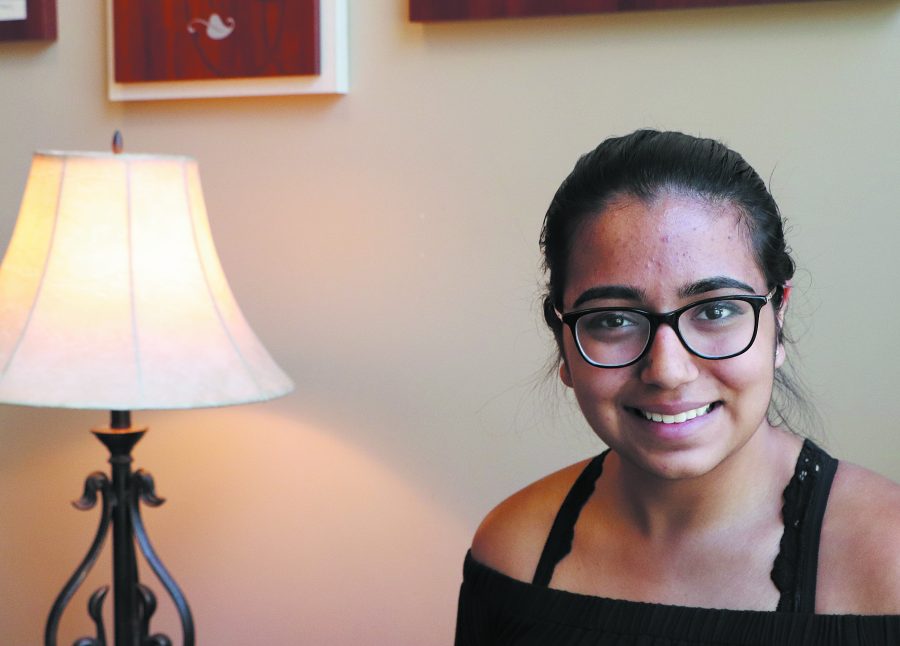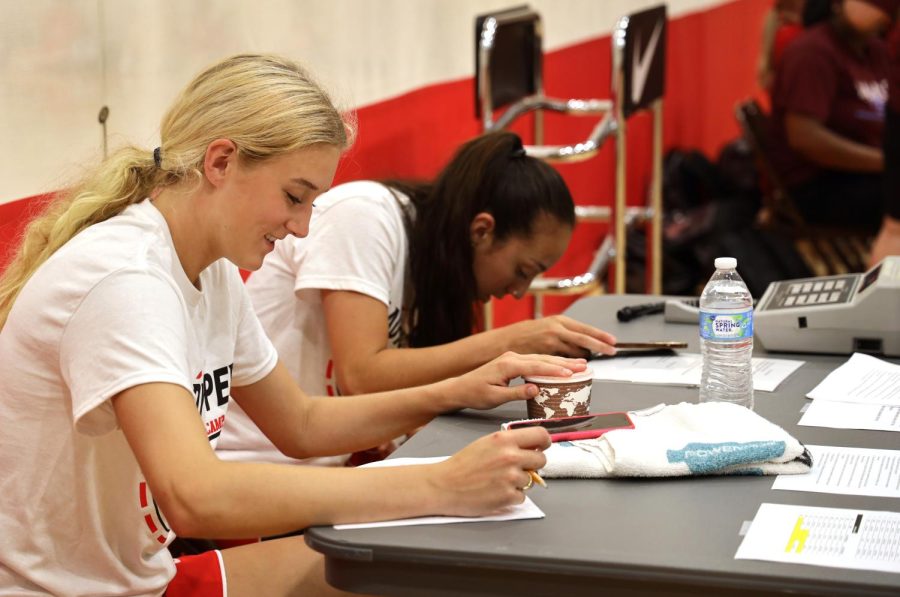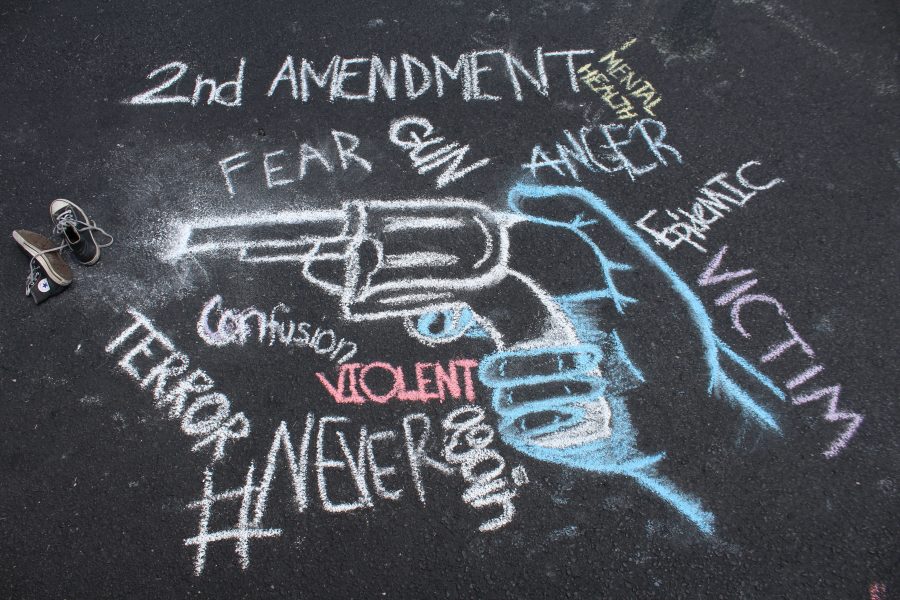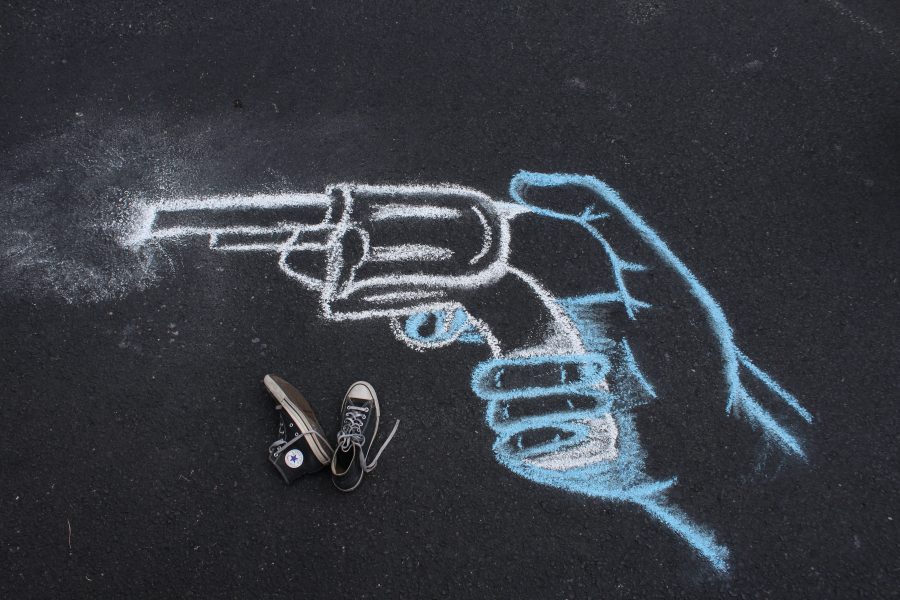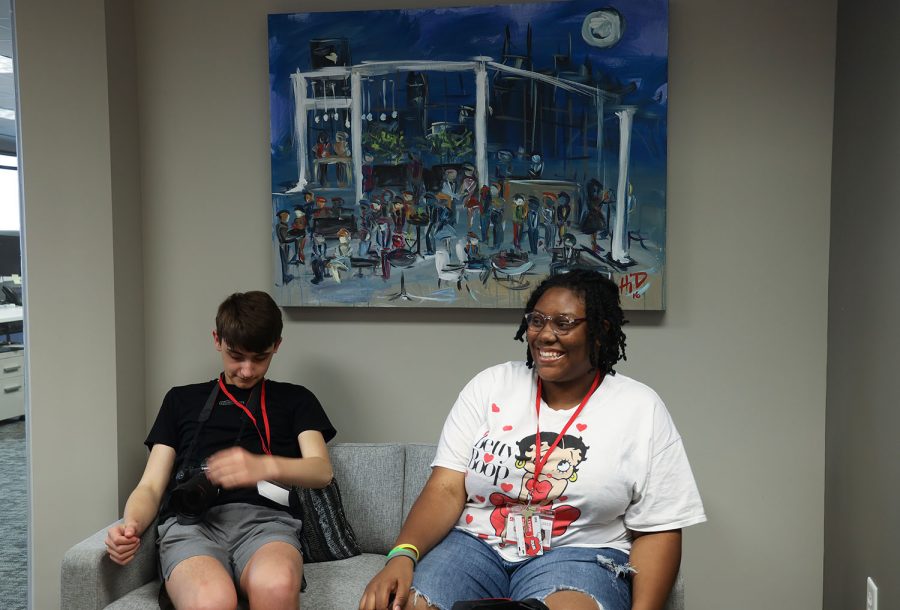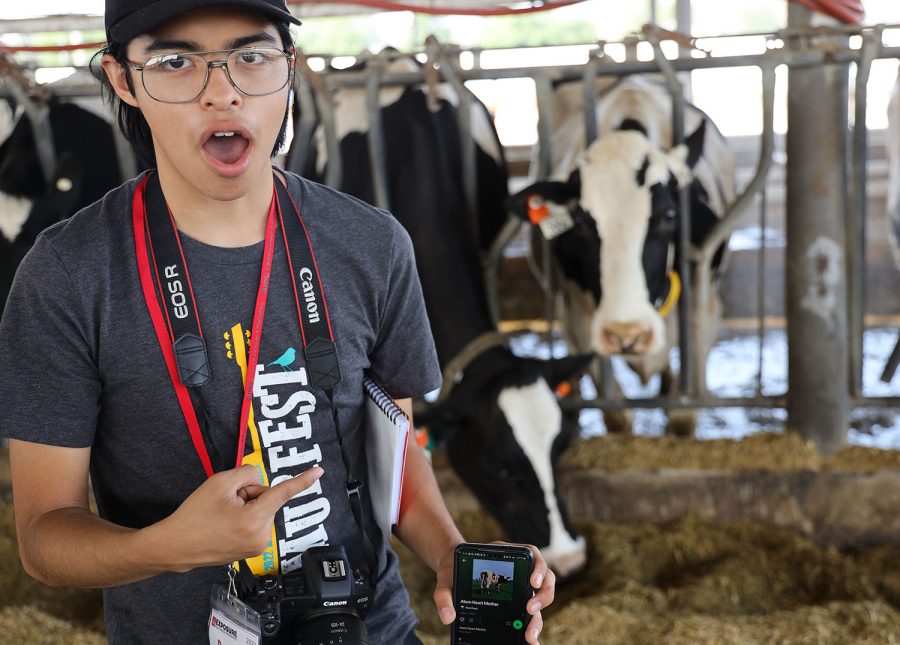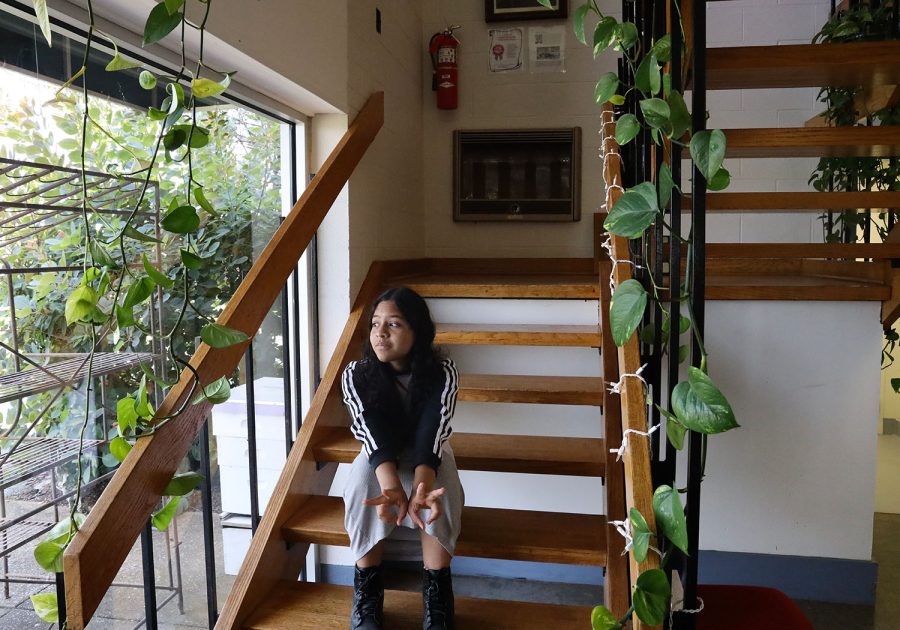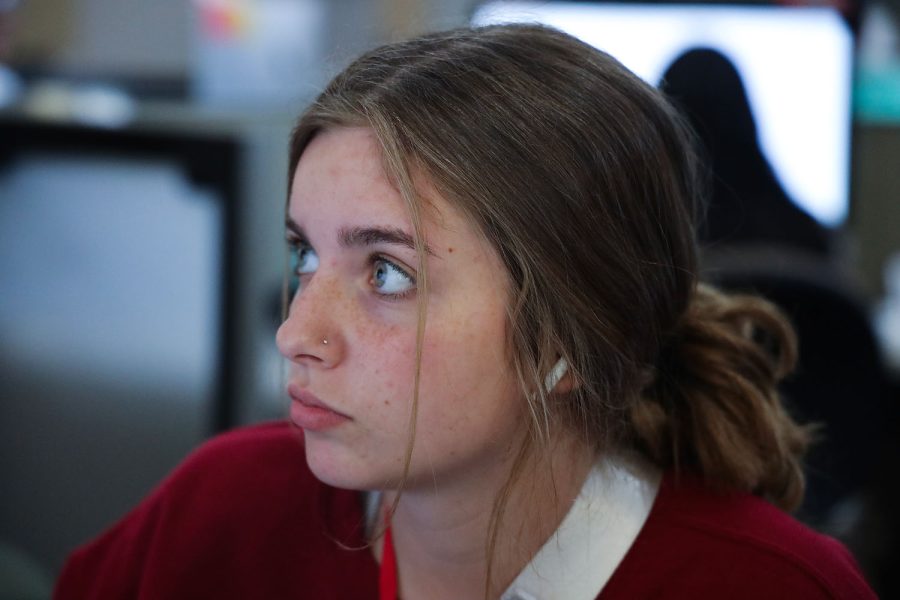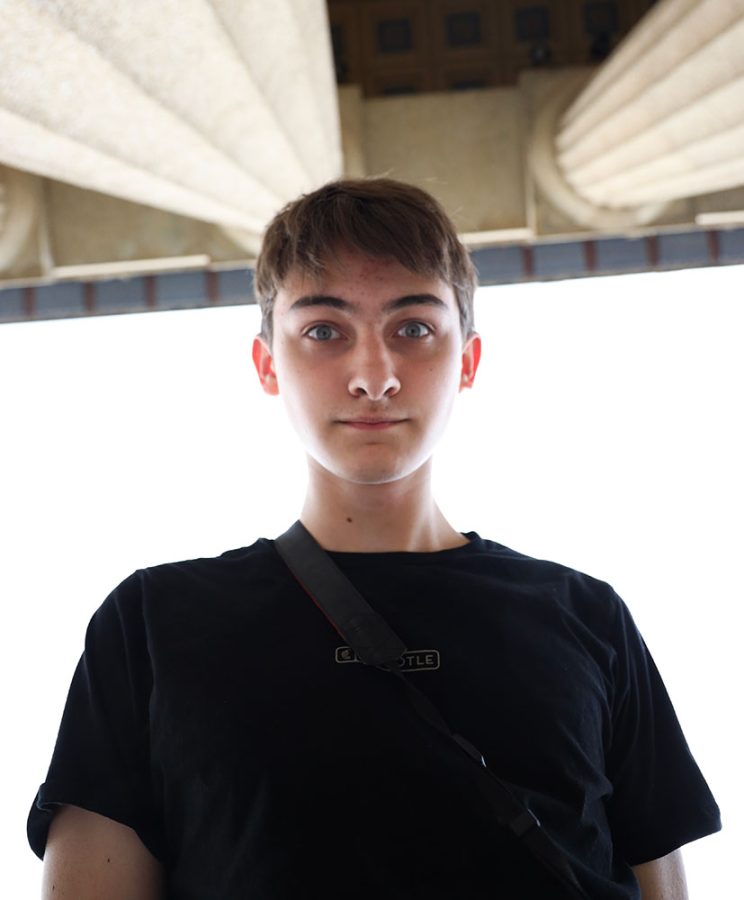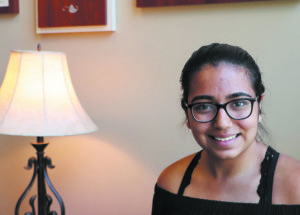
Photo by Brody Rexing / F.J. Reitz High School.
By Brody Rexing
Reitz High School
“Aanya” is a word Sanskrit in origin, meaning “inexhaustible fire.” To Aanya Agarwal, it reflects her burning ambition to make a difference and “unwillingness to stop.”
Agarwal was born in Delhi, India, and moved to Chicago with her family when she was 2.
“My dad gave an interview for a U.S.-based company, and he was like, ‘There’s no way I’m getting this. I’m not good enough for this’ — and he gets it.”
Three years later, the Agarwals moved to Omaha, Nebraska, while she was in kindergarten.
Although Agarwal left India at a young age, she didn’t leave its issues — her top priority is to stop the unchecked and rising number of child brides there.
It is illegal to marry girls younger than 18 in India and violators face jail time. However, men 25 to 30 years older than their adolescent brides regularly force them into binding marriage contracts. Agarwal said the practice continues because young women don’t have education opportunities.
Agarwal said she has watched close friends, including the daughter of her grandparents’ caretaker who is her age, fell victim to the child-marriage machine.
“The last time I went to India, I started to realize: If she’s my age, why isn’t she in school?” Her conclusion was that her friend did not have the opportunity to receive the same education she had.
“In India, private school is basically the only option,” Agarwal said. “All schools cost money, unless you want to go to government school, which is nothing like school at all.”
Government schools in India are notorious for low passing rates and poor merit.
Her friend’s dilemma is mirrored across India, Agarwal said, and her friend’s mother could only hope to keep her daughter at home to marry into a stable future.
While her friend will be about 17 when she gets married, Agarwal knows girls far younger facing the same prospect.
“There are girls [in the 6th grade] getting married, and that’s terrifying,” she said. “I see all of the poverty in India, and I see the problems that kids my age and kids younger than I am are facing.”
The dilemma is far from hopeless to Agarwal, though. Through the Xposure Workshop, she hopes to build a website that will bring light to the child bride issue.
Agarwal’s own schooling has been blemished by bullying and exclusion which started in elementary school.
While bullies typically halt success, Agarwal drew inspiration from her detractors. “I feel like I kind of have to prove my worth to them and to myself,” said Agarwal.
Agarwal aims high: she wants to attend Harvard University to secure a future in either law, medicine or journalism. Her choices are influenced by her desire to help better a world in “terrible condition.”
She will be the opinions editor for the Hoofbeat, her school’s student newspaper, next year after working as a staff writer in 2017-2018.
“The main reason I joined, is because of the whole ‘fake news’ crisis going on,” Agarwal said.
“I was like, ‘Can nobody write good news?’” she said. “And then I was just like, ‘Fine, I’ll do it myself.’”
In addition to taking journalism “into her own hands,” Agarwal is a member of her school’s debate team, French Honors Society, peer tutoring and volunteer program.
Agarwal is an Indian immigrant, but her story and her work are without borders, titles or labels. Her goal is to speak out against child marriage in India and fight for equality and education for women everywhere.
“I want to make at least one person’s life better. If I can do that, I’d consider it a success.”

